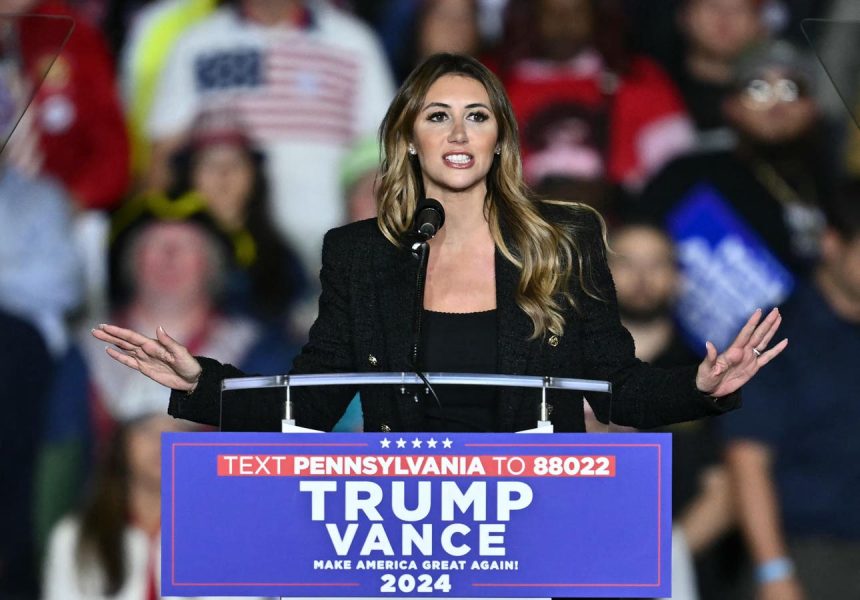President-Elect Trump Shapes Second-Term Administration with Controversial Picks
President-elect Donald Trump has been actively building his second-term administration, announcing a series of appointments that blend familiar faces from his first term with some surprising and controversial new additions. His selections signal a strong intention to pursue his previously stated policy goals, including aggressive immigration reform, deregulation, and a focus on economic nationalism. The appointments have sparked a mixture of anticipation and concern, with some praising Trump’s choices as bold and disruptive, while others express apprehension about the potential consequences of his selections. The diverse backgrounds of the appointees, ranging from established political figures to business leaders and controversial figures, reflect Trump’s unconventional approach to governance.
Key Appointments and Areas of Focus:
Several key appointments highlight Trump’s priorities for his second term. The selection of Marco Rubio as Secretary of State suggests a continuation of a more assertive foreign policy, though Rubio’s specific stances on certain issues may differ from Trump’s. The appointment of Robert F. Kennedy Jr. to head the Department of Health and Human Services has drawn significant attention and criticism, given Kennedy’s controversial views on vaccines and public health. The choice of Howard Lutnick, CEO of Cantor Fitzgerald, as Commerce Secretary underscores Trump’s focus on business and potential for deregulation, while the selection of Kristi Noem as Homeland Security Secretary signals a commitment to a hardline immigration policy.
Trump’s economic team is taking shape with the nomination of Scott Bessent as Treasury Secretary, a hedge fund executive known for his pro-tariff stance, aligning with Trump’s economic nationalist agenda. Kevin Hassett’s return as National Economic Council Director adds a familiar voice to economic policy discussions but may present some internal debate, given Hassett’s recent expressions of skepticism about some of Trump’s economic proposals. Elon Musk’s involvement in the newly created Department of Government Efficiency, alongside Vivek Ramaswamy, suggests a focus on streamlining bureaucracy and reducing government spending, though the details and effectiveness of this new department remain to be seen.
The Justice Department appointments are particularly noteworthy, given Trump’s vocal criticism of the agency and his anticipated focus on reshaping its direction. Pam Bondi, a staunch Trump ally, has been chosen to lead the Justice Department, while other Trump attorneys, including Todd Blanche and Emil Bove, have been tapped for key positions. These appointments raise questions about the potential for politicization of the Justice Department and the pursuit of retribution against Trump’s perceived enemies. The nomination of former SEC Chairman Jay Clayton as U.S. Attorney for the Southern District of New York further underscores Trump’s intention to reshape the legal landscape.
Controversies and Potential Challenges:
Several of Trump’s appointments have been met with controversy and raise concerns about potential conflicts of interest or the direction of policy under his second term. Kennedy’s appointment to HHS has been widely criticized due to his anti-vaccine views, which are contrary to established scientific consensus. The selection of Peter Navarro, recently convicted of contempt of Congress, as a senior trade advisor, raises questions about Trump’s willingness to embrace figures who have defied legal processes. The appointment of family members and close associates, such as Charles Kushner and Massad Boulos, to ambassadorial roles raises concerns about potential nepotism and the influence of personal relationships on policy decisions.
Moreover, the appointment of individuals with limited or no experience in the areas they now oversee could pose challenges for the administration. For instance, Mehmet Oz’s lack of experience in public health administration raises questions about his ability to effectively lead the Centers for Medicare and Medicaid Services. Similarly, the appointment of figures like Sebastian Gorka and Scott Turner, with backgrounds primarily in media or sports, to key national security and housing roles, respectively, has been met with skepticism regarding their qualifications and suitability for these positions.
Influence of Right-Wing Groups and Individuals:
Trump’s second-term agenda and personnel choices appear heavily influenced by right-wing groups and individuals, including the America First Policy Institute, which has been instrumental in crafting potential executive actions. The influence of figures like Elon Musk, Stephen Miller, and Howard Lutnick is also apparent in both policy directions and personnel selections. This alignment with right-wing ideologies suggests a continuation of Trump’s populist and nationalist approach to governance, with potential implications for domestic and foreign policy.
A Complex and Unconventional Administration:
Trump’s second-term administration is shaping up to be as complex and unconventional as his first. The diverse and often controversial nature of his appointments reflects his willingness to break with traditional political norms and prioritize loyalty and ideological alignment over experience and expertise in some cases. The blend of familiar faces and new additions suggests a continuation of some of the key themes and policies of his first term, with the potential for further disruption and controversy in the years to come. The long-term implications of these appointments and their impact on the direction of the country remain to be seen, but they are certain to be under close scrutiny as Trump embarks on his second term.
The remaining paragraphs can provide more detailed analysis of specific areas, such as Trump’s foreign policy appointments and their potential impact on international relations, or discuss the economic implications of his chosen team and their proposed policies. Alternatively, the paragraphs could explore the potential challenges and controversies that may arise from Trump’s unconventional appointments and the influence of certain individuals or groups on his administration. Focus on specific individuals and their backgrounds, controversies, and potential contributions (or detriments) to their designated roles.



